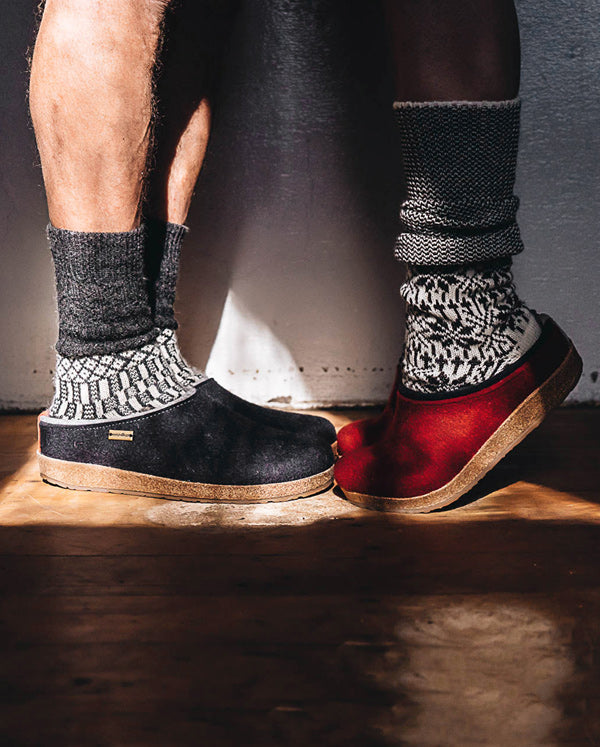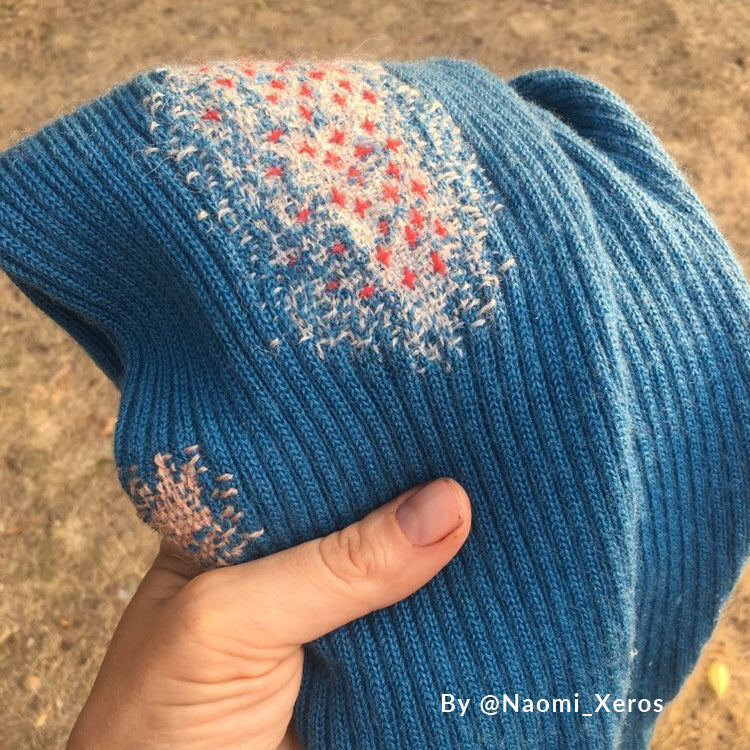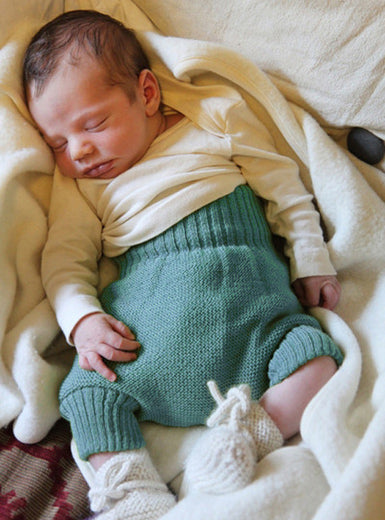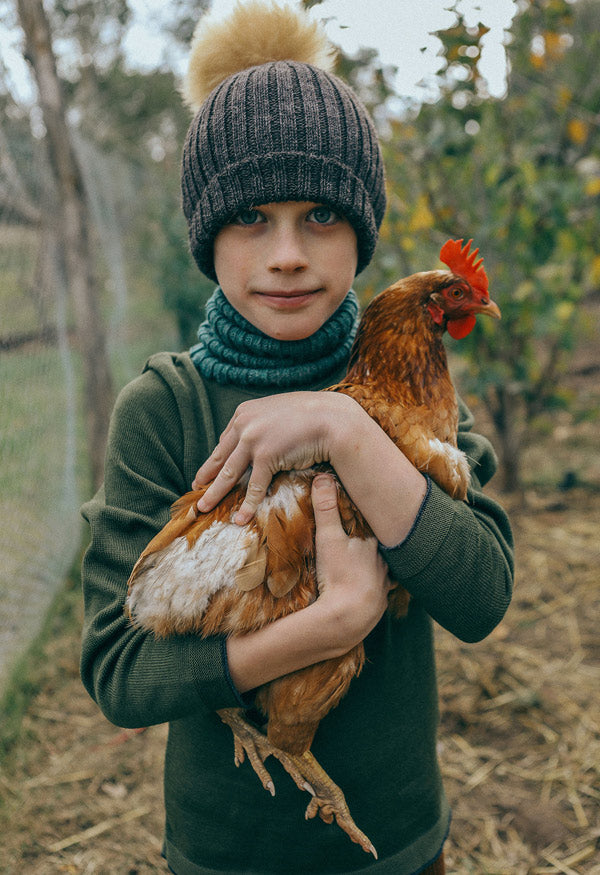Your Cart is Empty
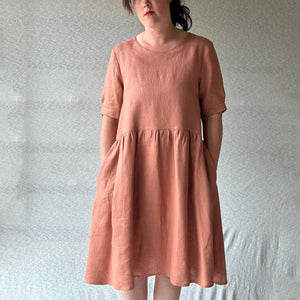
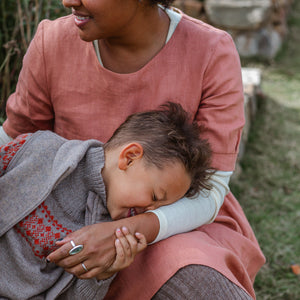

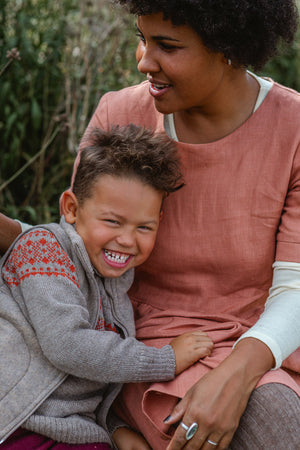
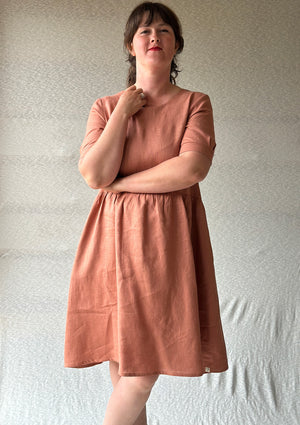
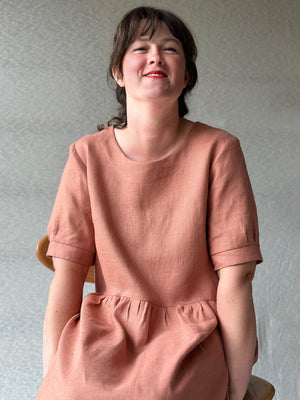
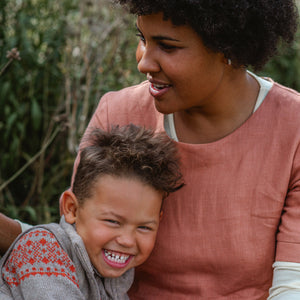
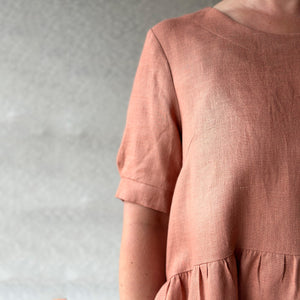
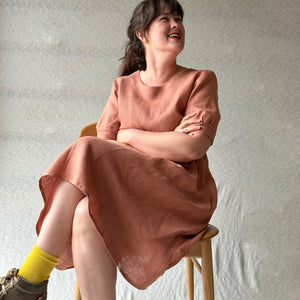
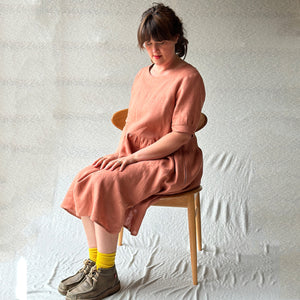
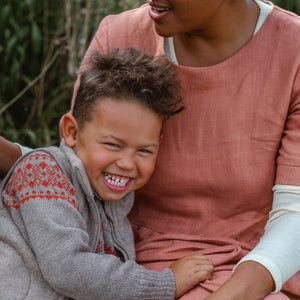
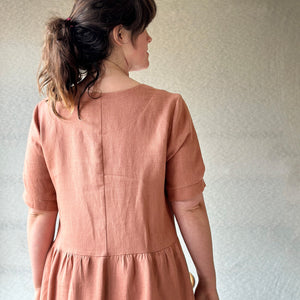
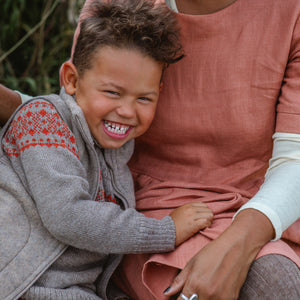
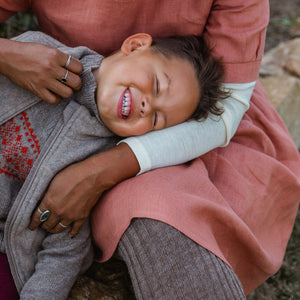
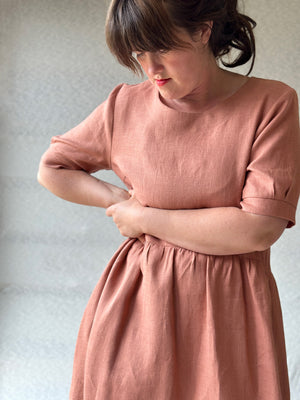
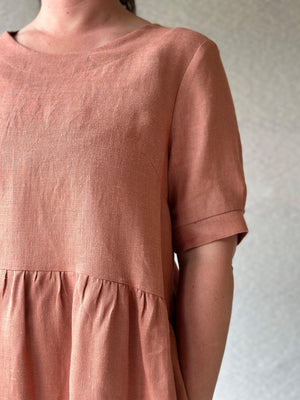
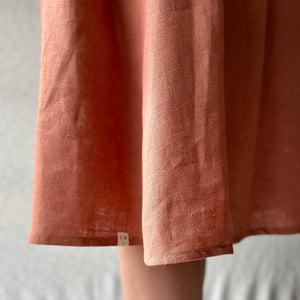
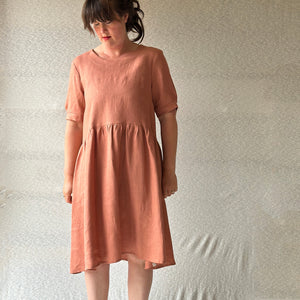
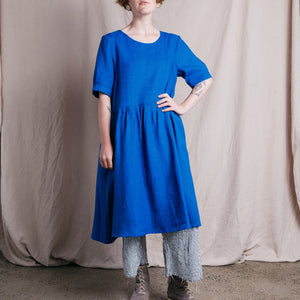
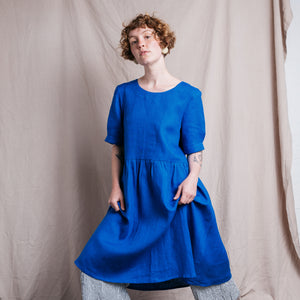
Kirsten Dress in 100% Linen - Taverna Pink Clay (L-XL) *Last One!
$168.00 - $198.50$248.00
*Also available in Midnight Indigo (listed separately)!*
This Kirsten Dress by UMIFORM is made in a gorgeous European milled linen.
This beautiful quality fabric is produced in small batches in Eastern Europe where there is a strong heritage of spinning and weaving linen fabric. Made by a mill who uses electricity supplied solely from renewable energy sources and OEKO Tex certified.
Features inseam pockets, mid-length sleeves that cover the upper arm with a cuff and pleat. The waist scoops down at the back giving it a casual easy-to-wear feel with flattering high front waistline. Named after the lovely Kirsten who worked at Woollykins and inspired this dress style.
Small batch made in Melbourne for UMIFORM in central Victoria
Fabric: European Linen 100% grown and produced in Lithuania, Oeko Tex certified
Colour: Taverna Pink Clay
Size (Relaxed fit): Women's S-M (8-12), M-L (12-16), L-XL (16-18+)
Size advice. A Women's 12 can wear both Small-M and Medium-L. If you have broader shoulders choose the size M-L.
Model Ruth size 14 and 170cm wears size M-L in Midnight Indigo
Measurements in cms: taken FLAT - measure a similar shape garment in your wardrobe flat to compare. Double measurement for circumference.
| S-M (8-12) | M-L (12-14) | L-XL (16-18+) | |
| Across top of shoulder | 40.5 |
43.5 |
45.5 |
| Bust | 49.5 |
52.5 | 57 |
| Waist | 52 | 56.5 | 60.5 |
| Length (Front) | 105.5 | 107 | 107 |
| Length (Back) | 108 | 109 | 111 |
Care: Gentle machine wash, max 30 degrees with like colours. Line dry. Iron if desired.
--
UMIFORM designs and makes utilitarian clothing for mothers who appreciate beautiful textiles. Handmade in small batches in Melbourne with a waste-free production - all surplus fabric going into childrenswear and mending kits.
--
More about linen:
Linen is naturally stain resistant, does not pile, and is moth repellent. It is easy to wash and is a very strong fibre.
It is anti-bacterial, anti-fungal, hypo allergenic and thermoregulating, it will also absorb up 20% moisture before feeling damp.
Flax is a strong plant best grown in northern Europe. It needs little or no fertilisers and due to the local climate, little extra water. It doesn’t really require pesticides either as it can grow in poor quality soil. The Advisory Commission Report to the European Parliament stated that flax cultivation has positive effects on eco-system diversity as it allows for an “environmental pause”. One hectare of flax can retain 3.7 tonnes of CO2. Every part of the plant is used, what isn’t used to produce linen can be used to make linseed oil, paper, cattle feed or even soap.
Linen is therefore almost naturally organic. It is completely biodegradable, recyclable and due to its natural absorbency, it requires less dye than cotton. Linen therefore scores high on the ecological chart.
You may also like
